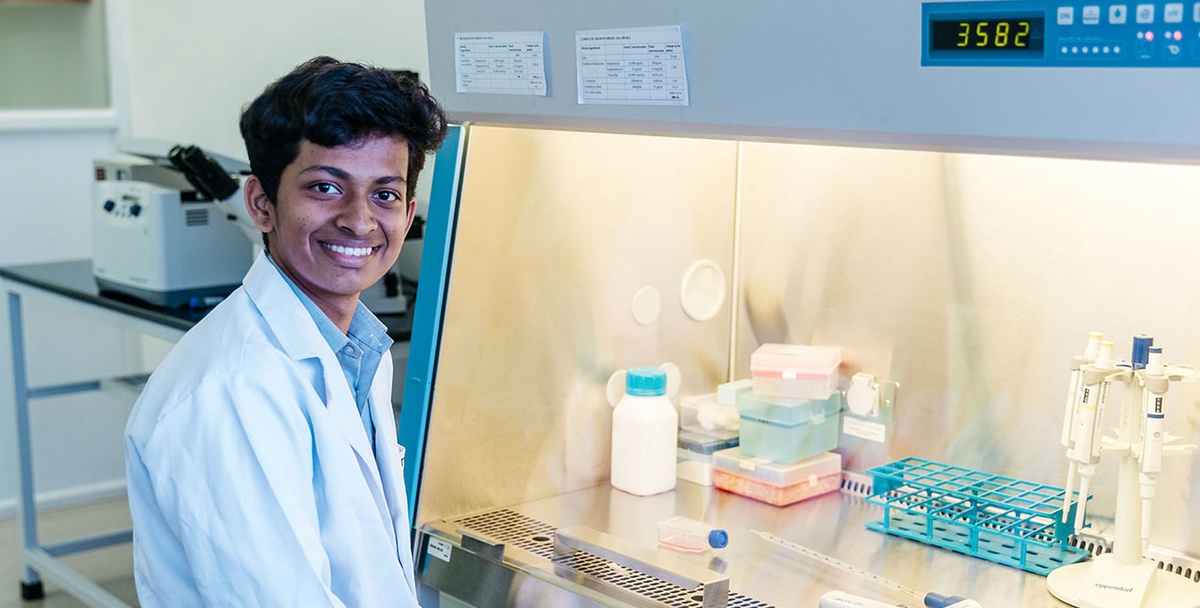Introduction
Biotech engineering, also known as biotechnology engineering, is an interdisciplinary field that merges principles of biology, chemistry, genetics, and engineering to develop innovative solutions for various applications.
It harnesses living organisms' cellular and molecular processes to create valuable products and technologies that benefit diverse industries, including medicine, agriculture, the environment, and more. The growing popularity of this field has led to a large number of applications at biomedical science colleges.
Historical Development of Biotech Engineering
Biotech engineering has a rich history that dates back to ancient times when humans first harnessed microorganisms for food fermentation and brewing. However, it wasn't until the late 20th century that the term "biotechnology" emerged, with the successful birth of the first genetically engineered human insulin in 1978. This groundbreaking achievement paved the way for further research and applications in the field of biotechnology.
In the 1970s, the discovery of recombinant DNA technology revolutionized biotech engineering by allowing for the manipulation and modification of genetic material. This breakthrough opened up new possibilities for scientific advancement. Since then, the field has seen rapid advances, including gene editing techniques like CRISPR-Cas9, synthetic biology, and personalized medicine.
Key Areas of Biotech Engineering
- Medical Biotechnology
Medical biotechnology focuses on developing therapeutic products, diagnostics, and vaccines to combat various diseases and medical conditions. Biotech engineers work on designing and producing pharmaceuticals using genetically engineered microorganisms or cell cultures. They also explore gene therapies, regenerative medicine, and drug delivery systems, revolutionizing the healthcare industry.
- Agricultural Biotechnology
Agricultural biotechnology aims to enhance crop yields, improve resistance to pests and diseases, and develop more sustainable farming practices. Biotech engineering has led to the creation of genetically modified (GM) crops with desirable traits, such as increased nutritional content or drought tolerance, thereby addressing global food security challenges.
- Environmental Biotechnology
Environmental biotechnology endeavors to address ecological issues by utilizing biological processes. Biotech engineers work on developing bioremediation techniques to clean up polluted environments, waste treatment solutions, and sustainable biofuels, reducing the reliance on fossil fuels and minimizing the carbon footprint.
- Industrial Biotechnology
Industrial biotechnology seeks to optimize industrial processes by utilizing biological agents. This includes the production of bio-based materials, chemicals, and biofuels, which are more environmentally friendly alternatives to conventional petroleum-based products.
- Bioinformatics
Bioinformatics is a critical area of biotech engineering that involves the use of computational tools and algorithms to analyze and interpret biological data. It plays a vital role in genomics, proteomics, and drug discovery, providing valuable insights into complex biological systems.
Methodologies and Techniques in Biotech Engineering
- Genetic Engineering
Genetic engineering involves manipulating an organism's genetic material to institute new traits or modify existing ones. Techniques like gene cloning, recombinant DNA technology, and gene editing tools like CRISPR-Cas9 are commonly used in this field.
- Fermentation
Fermentation is a traditional biotechnological process that involves the controlled growth of microorganisms to produce useful products like antibiotics, enzymes, and biofuels.
- Cell Culture
Cell culture techniques involve growing and maintaining cells outside their natural environment. This is crucial for producing biopharmaceuticals and studying cellular behavior in a controlled setting.
- Bioprocessing
Bioprocessing refers to the techniques used to scale up biotechnological processes from the laboratory to industrial-scale production. This involves optimizing conditions for cellular growth, product formation, and purification.
- Systems Biology
Systems biology aims to understand biological systems as a whole, considering interactions between various components. It utilizes computational models to study complex biological networks.
Significance of Biotech Engineering
Biotech engineering has far-reaching implications for society, the economy, and the environment. Some of the key significance include:
- Improved Healthcare
Biotech engineering has led to the development of life-saving drugs, gene therapies, and diagnostic tools, significantly improving healthcare outcomes and extending human lifespans.
- Agricultural Advancements
GM crops and advanced agricultural practices have the potential to address global food shortages and promote sustainable farming practices.
- Environmental Sustainability
Biotechnological solutions for waste treatment and biofuel production contribute to environmental conservation and reduce the impact of human activities on the planet.
- Economic Growth
The biotechnology industry has created numerous job opportunities and has become a significant driver of economic growth.
- Ethical Considerations
The field of biotech engineering raises important ethical considerations, such as genetic modification, privacy concerns, and equitable access to biotechnological advancements.
Conclusion
Biotech engineering is a multifaceted and ever-evolving field that holds tremendous promise for the future. Its applications span across diverse industries and have the potential to revolutionize our lives positively. One can pursue this field from the best biotech engineering colleges in India.
However, responsible and ethical implementation is crucial to ensure that biotechnological advancements benefit humanity and the planet as a whole. As researchers continue to explore the frontiers of biotech engineering, society must engage in thoughtful discussions to gain a balance between progress and ethical considerations.


No comments yet